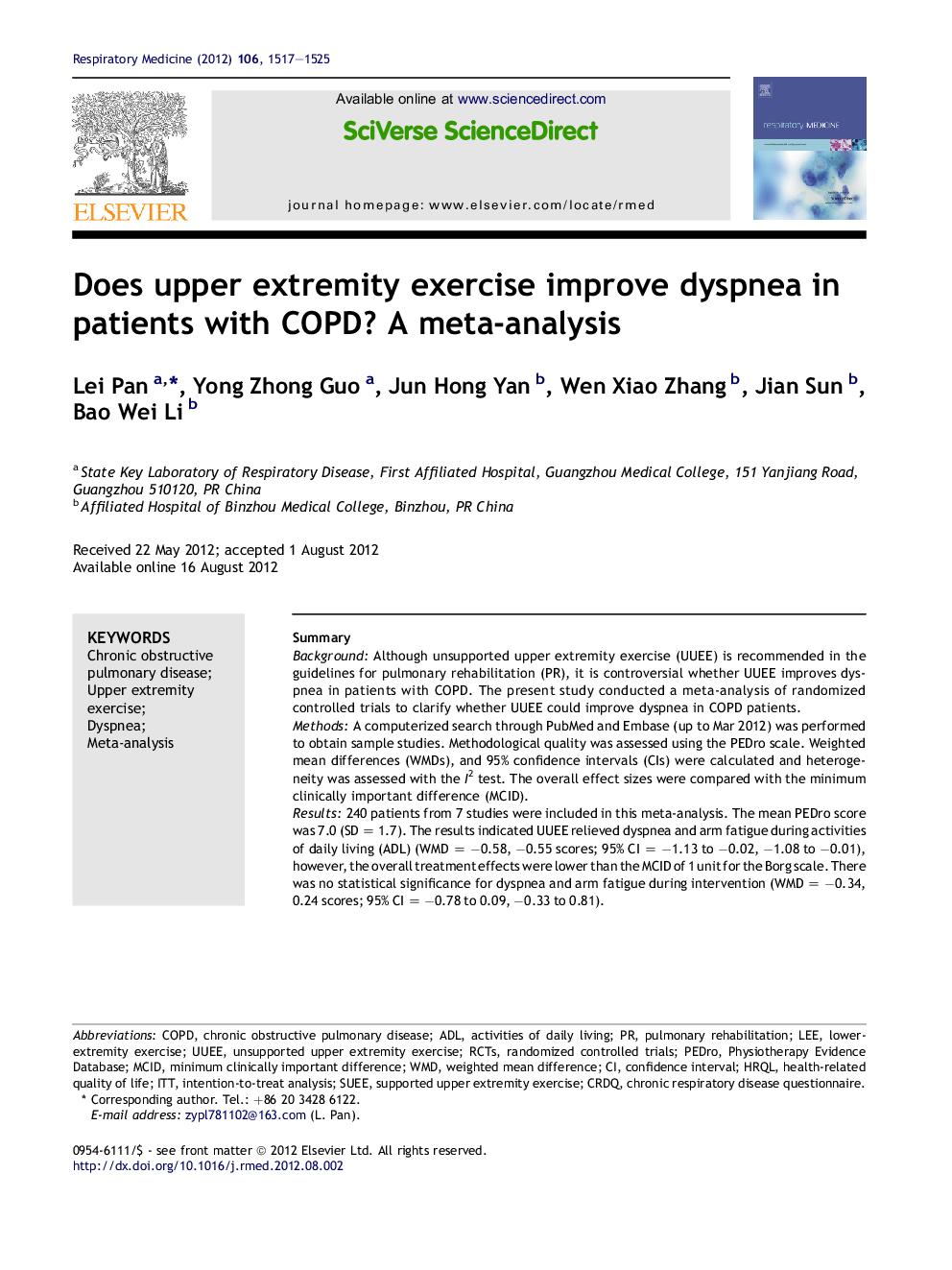| Article ID | Journal | Published Year | Pages | File Type |
|---|---|---|---|---|
| 4210381 | Respiratory Medicine | 2012 | 9 Pages |
SummaryBackgroundAlthough unsupported upper extremity exercise (UUEE) is recommended in the guidelines for pulmonary rehabilitation (PR), it is controversial whether UUEE improves dyspnea in patients with COPD. The present study conducted a meta-analysis of randomized controlled trials to clarify whether UUEE could improve dyspnea in COPD patients.MethodsA computerized search through PubMed and Embase (up to Mar 2012) was performed to obtain sample studies. Methodological quality was assessed using the PEDro scale. Weighted mean differences (WMDs), and 95% confidence intervals (CIs) were calculated and heterogeneity was assessed with the I2 test. The overall effect sizes were compared with the minimum clinically important difference (MCID).Results240 patients from 7 studies were included in this meta-analysis. The mean PEDro score was 7.0 (SD = 1.7). The results indicated UUEE relieved dyspnea and arm fatigue during activities of daily living (ADL) (WMD = −0.58, −0.55 scores; 95% CI = −1.13 to −0.02, −1.08 to −0.01), however, the overall treatment effects were lower than the MCID of 1 unit for the Borg scale. There was no statistical significance for dyspnea and arm fatigue during intervention (WMD = −0.34, 0.24 scores; 95% CI = −0.78 to 0.09, −0.33 to 0.81).ConclusionsUUEE can relieve dyspnea and arm fatigue in patients with COPD during ADL and should be included in the PR program, however, there is currently a lack of clinical evidence to support UUEE relieving dyspnea and arm fatigue. Further study is urgent to investigate these effects of UUEE.
